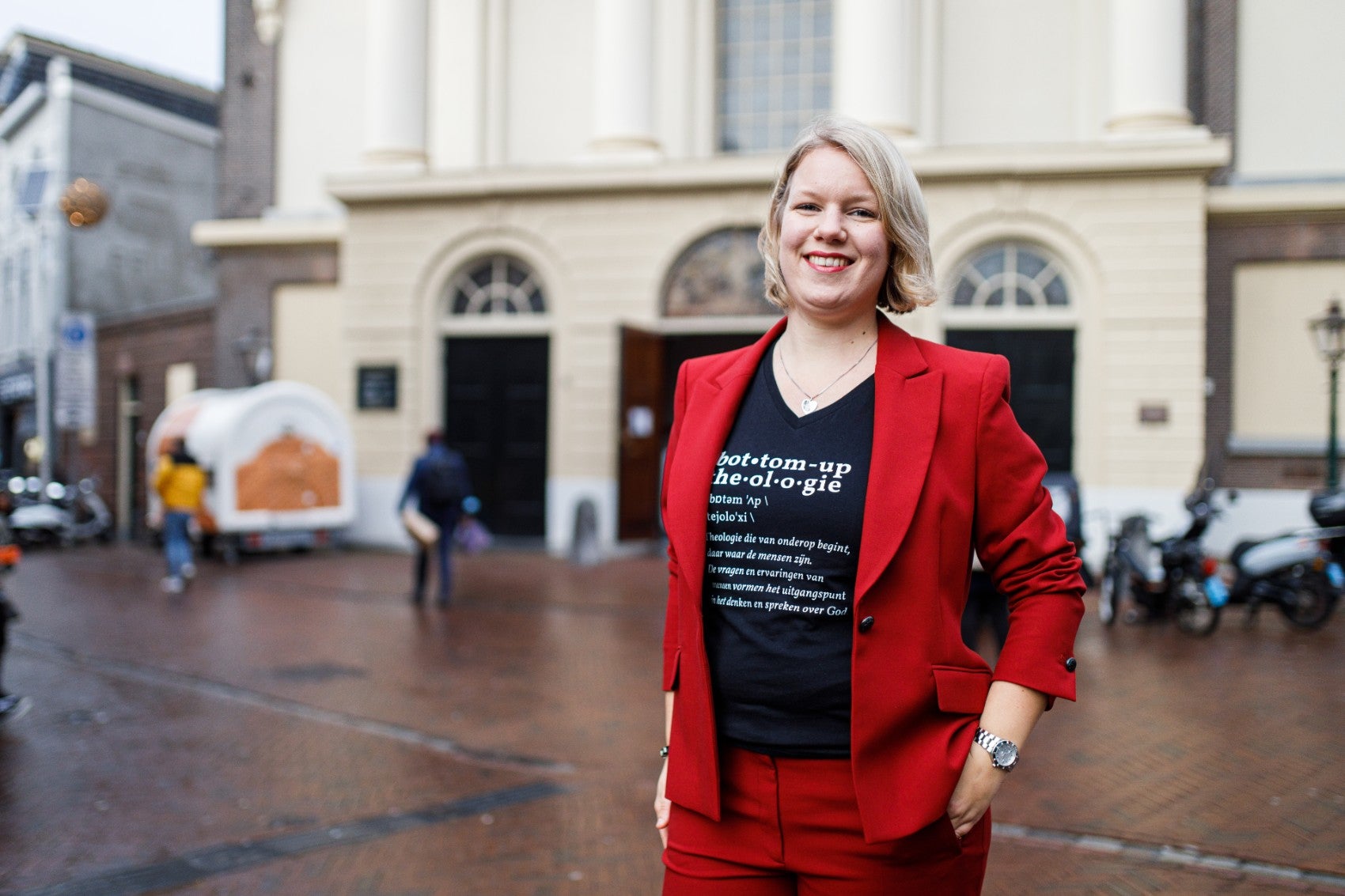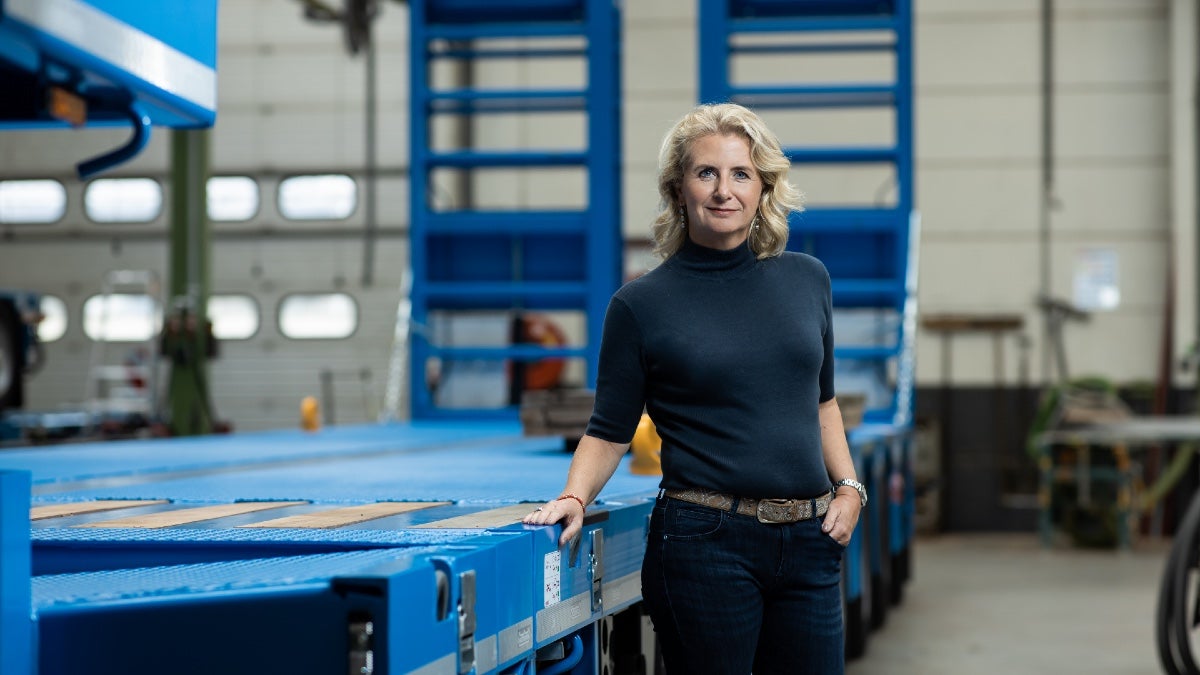Tabitha van Krimpen (23) is using her business administration programme to reform the church. „I recommend any young people wanting to set off on a backpacking adventure to try visiting their local church. Maybe it’s much more ground-breaking than you thought."
Business administration and theology: a striking combination. Tell me more!
„I initially chose business administration because I really enjoy organising events and wanted to learn the practical side of this. At the same time, I had all kinds of questions about faith and meaning and wanted to work on these in an academic setting. Who am I? What do I want? And what are my beliefs? I decided to follow an additional programme in theology."
„The fact that I was seeking answers to questions about belief is because I come from a Protestant family. We went to church twice every Sunday and I learned that everything in the Bible really happened. That idea was rather confining during adolescence. At university nobody was asking questions about the relationship between the story of creation and evolution. I learned that there are also irregularities and inconsistencies in the Bible. The meaning goes further than just the literal, and the symbolic and metaphoric layer made it much deeper and richer for me. That insight was liberating."
And did it prove to be a logical combination?
„Definitely. Theology can learn a lot from business administration. And within the church there’s a huge need for more knowledge and vision about management. Managing a company is completely different from a church where, as minister you’re often the only professional among volunteers."
„Moreover, for young people, authentic leadership is important. It’s important that you share your questions and doubts as minister and don’t only tell nice stories. For the older generation of ministers that’s not always an obvious thing to do. And yet, they need to recognise that this is really important for my generation. People of my age don’t believe something just because a minister or someone else from the church says it."
Talking about young people. In your essay you wrote that there are way more young people in the psychiatrist’s waiting room than the minister’s. What do you mean by that?
„The barrier for going to the church is high for young people. At the same time, the university psychologists have enormous waiting lists and universities are doing a lot to improve student welfare. That’s a good thing, but they’re establishing a really professional setup for that; it’s becoming institutionalised."

„I think what people need more is a shoulder to cry on. A chat with the neighbour instead of a professional offering a treatment programme. A minister won’t send you an invoice. The church is one of the few places where you can talk to someone who has been taught to do that but expects nothing in return. Nor does suffering or the vulnerable side of life need to be resolved immediately. I don’t mean to trivialise serious psychological conditions but I do have the idea that people are too quick to think that they’re not normal if they’re not feeling good about themselves. I also think that young people sometimes don’t know that the things they’re struggling with are about meaning."
Why do you think people don’t seek answers to such issues about meaning in the church?
„There is a preconception about the Church that they are evangelists. It’s really not always about that. Take an initiative such as NEWconnective that’s also offered at Vrije Universiteit. People who are connected to various beliefs and religions work there, but they work without an agenda and only act as a listening ear and a support for students."
How much of the exodus is down to the church?
„Often theology focuses more on dogmatism than making the connection to current themes such as the housing crisis, loneliness and the climate. It’s time that churches started a dialogue with young people. Not only proclaiming the message. They need to work out what’s important for young people and go to them instead of dragging young people to the church. That’s what I call bottom-up theology."
And how do churches do that in practice?
„That starts with ensuring that your website is up-to-date and the activities are clear. Websites currently mainly focus on churchgoers. A church service on Sunday? Many of my peers have never even been to one. It would be more appropriate to organise discussion groups; evenings in which issues about life or cultural expressions are discussed and connect these with the Christian tradition or sources."
„The church and theology are mistakenly detached from the rest of the world. I work at Holy Hub in Amsterdam where we recently gave a course about the Sabbath, the Jewish day of rest. What can you learn from that in a society in which everyone is just busy, busy, busy? And I recommend any young people wanting to set off on a backpacking adventure to try visiting their local church. Maybe it’s much more of an adventure than you thought."








